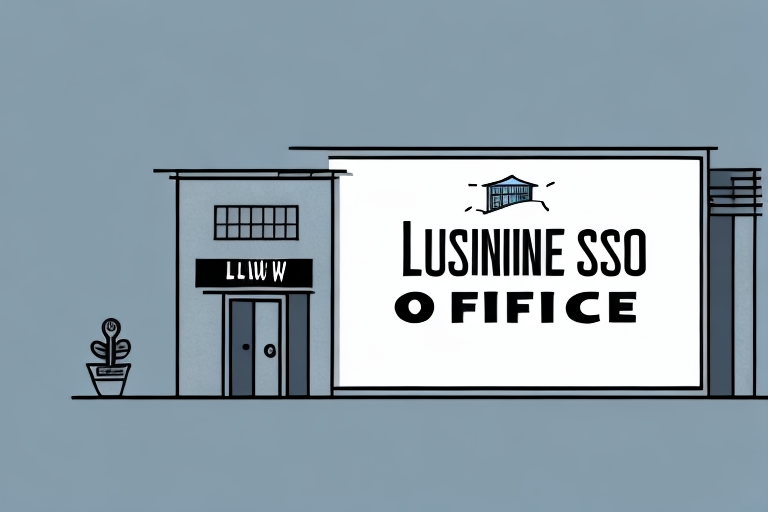Running a successful business involves navigating various legal complexities and ensuring that your interests are protected. This is where commercial lawyers play a vital role. In this article, we will explore the importance of commercial lawyers in business and how they safeguard your organization’s well-being.
Understanding the Role of Commercial Lawyers
In today’s complex business landscape, the role of commercial lawyers Melbourne has become increasingly important. These legal professionals specialize in providing advice and guidance to businesses on a wide range of legal matters. From contract drafting to dispute resolution, commercial lawyers play a crucial role in ensuring the smooth operation of businesses.
What is a Commercial Lawyer?
A commercial lawyer is a legal professional who possesses expertise in various areas of law that are essential for the smooth running of any business. They are well-versed in corporate law, contract law, intellectual property law, and other legal frameworks that govern businesses.
Commercial lawyers are not just legal experts; they are also strategic thinkers who understand the intricacies of the business world. They work closely with business owners and executives to identify potential legal risks and provide proactive solutions to mitigate them.

Key Responsibilities of Commercial Lawyers
The responsibilities of commercial lawyers are multifaceted. They go beyond the traditional role of providing legal advice and representation. Commercial lawyers act as trusted advisors who ensure that your business operates within legal boundaries and thrives in a competitive market.
One of the key responsibilities of commercial lawyers is contract drafting and negotiation. They assist businesses in creating legally binding agreements that protect their interests and minimize the risk of disputes. Whether it’s negotiating a partnership agreement or drafting terms and conditions for a new product launch, commercial lawyers ensure that all contractual arrangements are fair, clear, and enforceable.
In addition to contract-related matters, commercial lawyers also play a crucial role in dispute resolution. They are skilled negotiators and mediators who strive to resolve conflicts in a timely and cost-effective manner. Whether it’s a disagreement with a supplier, a customer complaint, or a breach of contract, commercial lawyers work diligently to find a mutually beneficial solution that preserves the business’s reputation and financial well-being.
Another important responsibility of commercial lawyers is intellectual property protection. They help businesses safeguard their valuable intangible assets, such as trademarks, copyrights, and patents. Commercial lawyers assist in the registration and enforcement of intellectual property rights, ensuring that businesses can capitalize on their innovations and maintain a competitive edge in the market.
Legal compliance is another area where commercial lawyers excel. They stay updated with the ever-changing legal landscape and help businesses navigate complex regulatory frameworks. Whether it’s ensuring compliance with employment laws, data protection regulations, or industry-specific regulations, commercial lawyers provide guidance and assistance to keep businesses on the right side of the law.
Risk management is a core aspect of a commercial lawyer’s role. They assess potential legal risks that businesses may face and develop strategies to mitigate them. By conducting thorough risk assessments and implementing robust compliance programs, commercial lawyers help businesses avoid costly legal disputes and reputational damage.
In conclusion, commercial lawyers are indispensable partners for businesses of all sizes. Their expertise in various areas of law, coupled with their strategic thinking and problem-solving skills, make them invaluable assets. Whether it’s navigating complex contracts, resolving disputes, protecting intellectual property, ensuring legal compliance, or managing risks, commercial lawyers play a vital role in the success and longevity of businesses.
The Importance of Commercial Lawyers in Business
Running a successful business requires more than just a great product or service. It involves navigating complex legal landscapes and ensuring that your business is protected from potential risks and disputes. This is where commercial lawyers play a crucial role. Let’s explore some key areas where commercial lawyers can make a significant impact.
Protecting Intellectual Property
Intellectual property is often a critical asset for businesses. It encompasses inventions, trademarks, copyrights, and trade secrets that give your business a competitive edge. Commercial lawyers assist in protecting your intellectual property rights by handling trademark registrations, patent applications, and copyright issues. They understand the intricacies of intellectual property law and can provide advice on licensing agreements, franchising, and technology transfers. By leveraging their expertise, you can maximize the value of your intellectual assets and safeguard them from infringement.
For example, let’s say you have developed a groundbreaking software solution. A commercial lawyer can guide you through the process of obtaining a patent, ensuring that your invention is protected from being copied or used without your permission. They can also help you draft licensing agreements that allow you to monetize your software while maintaining control over its use.

Ensuring Legal Compliance
In today’s complex regulatory environment, ensuring legal compliance is crucial for businesses. Commercial lawyers are well-versed in the laws and regulations that govern various aspects of business operations. They can help you navigate through areas such as employment, data protection, consumer rights, and advertising.
For instance, let’s say you are expanding your business and hiring new employees. A commercial lawyer can ensure that your employment contracts comply with labor laws, protecting both your business and your employees. They can also advise you on data protection regulations, helping you establish robust privacy policies and safeguarding sensitive customer information.
Moreover, commercial lawyers stay up-to-date with legal developments, ensuring that your business remains compliant with any changes in the law. By proactively addressing legal compliance issues, you can avoid costly legal disputes and maintain ethical business practices.
Mitigating Business Risks
Every business faces risks, and commercial lawyers are there to identify and mitigate them. They understand the potential pitfalls and can provide valuable guidance to protect your business interests and minimize financial risks.
For example, when engaging in mergers and acquisitions, commercial lawyers conduct due diligence to assess potential risks and liabilities associated with the transaction. They review contracts, financial statements, and legal documents to ensure that you are making an informed decision and that your interests are protected.
In addition, commercial lawyers are skilled in drafting robust contracts that clearly outline rights, obligations, and dispute resolution mechanisms. By having well-drafted contracts in place, you can minimize the risk of misunderstandings and legal disputes with clients, suppliers, or business partners.
Furthermore, if a commercial dispute does arise, commercial lawyers can help resolve it through negotiation, mediation, or litigation. Their expertise in dispute resolution can save your business time, money, and reputation.
In conclusion, commercial lawyers play a vital role in the success of businesses. They protect your intellectual property, ensure legal compliance, and mitigate business risks. By leveraging their expertise, you can focus on growing your business with confidence, knowing that your legal interests are well taken care of.
How to Choose the Right Commercial Lawyer for Your Business
Choosing the right commercial lawyer can significantly impact the success of your business. It is crucial to have legal representation that understands the complexities of commercial law and can effectively navigate the legal landscape. When considering hiring a commercial lawyer, there are several factors to take into account.
Factors to Consider When Hiring a Commercial Lawyer
1. Experience:
One of the first things to consider is the lawyer’s experience. Look for someone who has a proven track record in handling commercial law cases. An experienced lawyer will have the knowledge and expertise necessary to handle your specific legal needs effectively.
2. Specialization:
Commercial law covers a wide range of legal issues, including contract disputes, intellectual property, employment law, and more. It is essential to find a lawyer who specializes in the specific area of commercial law that is relevant to your business. This specialization ensures that they have a deep understanding of the laws and regulations that apply to your industry.
3. Reputation:
A lawyer’s reputation is a good indicator of their professionalism and competence. Look for reviews and testimonials from past clients to get a sense of their reputation. You can also ask for referrals from other business owners who have worked with commercial lawyers in the past.
4. Understanding of Your Industry:
It is crucial to select a lawyer who has a solid understanding of your industry. They should be familiar with the unique challenges and regulations that businesses in your sector face. This industry knowledge will enable them to provide tailored legal advice and representation to protect your business interests effectively.
5. Communication:
Effective communication is key to a successful lawyer-client relationship. Look for a lawyer who communicates clearly and promptly. They should be responsive to your inquiries and keep you informed about the progress of your case. Good communication ensures that you are always on the same page and allows for a smoother legal process.

Questions to Ask a Potential Commercial Lawyer
When evaluating potential commercial lawyers, it is essential to ask them specific questions to gain a deeper understanding of their capabilities and approach. Here are some questions you can ask:
1. Experience:
How many years of experience do you have in handling commercial law cases? Have you worked on cases similar to mine?
2. Billing:
How do you bill for your services? Is it an hourly rate or a flat fee? Are there any additional costs I should be aware of?
3. Strategy:
What strategies would you employ to protect my business interests? How would you approach my case?
4. Availability:
How accessible will you be throughout the legal process? Can I expect regular updates on the progress of my case?
Asking these questions will help you make an informed decision and establish a fruitful partnership with a commercial lawyer who is the right fit for your business. Remember to trust your instincts and choose a lawyer who not only meets your legal needs but also aligns with your business goals.
Working with a Commercial Lawyer
Establishing a Good Working Relationship
Collaboration is key when working with a commercial lawyer. Provide them with all the necessary information about your business, goals, and concerns. By establishing open lines of communication and fostering a relationship built on trust and transparency, you can ensure that your commercial lawyer fully understands your business needs.
Understanding Legal Fees and Costs
Before engaging a commercial lawyer, ensure clarity regarding their fees and costs. Discuss the fee structure, billing methods, and any potential additional expenses. Knowing the financial implications of your legal counsel helps you plan and budget accordingly.
Case Studies: How Commercial Lawyers Have Protected Business Interests
Case Study 1
One company, ABC Corporation, was facing a legal dispute with a former employee regarding the misappropriation of trade secrets. The commercial lawyer representing ABC Corporation meticulously gathered evidence, drafted compelling arguments, and successfully defended the company’s intellectual property rights in court.
Case Study 2
In another instance, XYZ Enterprises encountered legal complications during a merger negotiation. Their commercial lawyer’s expertise in contract drafting and negotiation played a crucial role in securing favorable terms and protecting XYZ Enterprises’ interests throughout the process.
In conclusion, commercial lawyers are invaluable assets for businesses seeking to protect their interests. By understanding their role, selecting the right lawyer, and establishing an effective working relationship, you can ensure that your business is legally compliant, well-protected, and positioned for long-term success.


